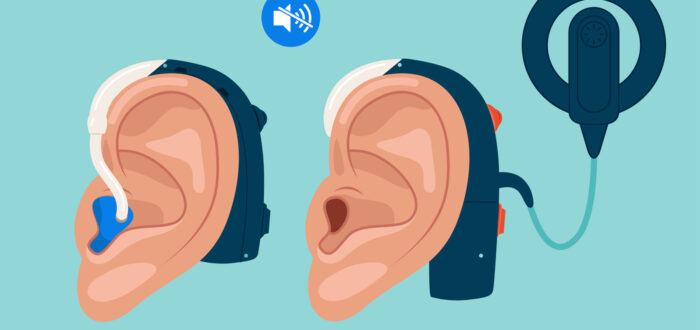Cochlear implants have revolutionized the way individuals with severe-to-profound hearing loss or deafness experience sound and communicate. However, despite their proven efficacy and success stories, misconceptions and myths surrounding cochlear implants persist.
In this guide, we debunk common myths about cochlear implants and provide evidence-based information to offer clarity on this transformative hearing technology.
Myth 1: Cochlear Implants Restore Hearing to Normal
Fact: While cochlear implants can significantly improve hearing and speech understanding, they do not restore hearing to normal levels. Cochlear implants bypass damaged hair cells in the cochlea and stimulate the auditory nerve directly, providing individuals with access to sound they may not have otherwise heard. However, the quality of sound perception may vary among users, and it may take time to adjust to the new auditory sensations.
Myth 2: Cochlear Implants Are Only for Profoundly Deaf Individuals
Fact: Cochlear implants are not solely reserved for individuals with profound deafness. They can benefit individuals across a wide range of hearing loss severity, including those with moderate to severe hearing loss who receive limited benefit from hearing aids.
Eligibility for cochlear implantation is determined based on various factors, including audiometric thresholds, speech recognition scores, and communication needs.
Myth 3: Cochlear Implants Are Invasive and Risky Surgeries
Fact: While cochlear implant surgery involves a surgical procedure to implant the internal device, it is generally considered safe and well-tolerated. Cochlear implantation is a routine outpatient procedure performed under general anesthesia, and complications are rare. Most recipients experience minimal discomfort and resume normal activities shortly after surgery, with the potential for life-changing improvements in hearing and communication.
Myth 4: Cochlear Implants Make You Completely Deaf Without Them
Fact: Cochlear implants do not cause total deafness, nor do they damage any remaining hearing. The decision to undergo cochlear implantation is carefully considered in collaboration with healthcare professionals, and candidates typically have limited benefit from hearing aids due to severe or profound hearing loss.
Cochlear implants provide access to sound and speech, enhancing communication and quality of life for recipients.
Myth 5: Cochlear Implants Are Only for Children
Fact: While cochlear implants are commonly associated with pediatric populations, they are equally beneficial for adults with hearing loss. Adults who experience declining hearing or deteriorating speech understanding despite using hearing aids may be candidates for cochlear implantation.
Age is not a limiting factor for successful outcomes with cochlear implants, and adults of all ages can experience significant improvements in hearing and communication.
Myth 6: Cochlear Implants Work Instantly and Perfectly
Fact: Adjusting to cochlear implants takes time and involves a period of rehabilitation and auditory training. While some recipients may experience immediate improvements in hearing and speech understanding, others may require weeks or months to adapt to the new auditory input and optimize their listening skills.
Rehabilitation programs and ongoing support from audiologists and speech therapists play a crucial role in maximizing the benefits of cochlear implantation.
Cochlear implants are a remarkable technology that has transformed the lives of countless individuals with severe-to-profound hearing loss or deafness. By dispelling common myths and misconceptions surrounding cochlear implants, we aim to empower individuals and families with accurate information to make informed decisions about hearing healthcare. If you or a loved one are considering cochlear implants, consult with an audiologist or ear, nose, and throat specialist to explore your options and determine the best course of action for improving hearing and communication abilities.
Need Help? Have a Question? Contact Us Today!
At REM Audiology, our hearing care professionals are on hand to help you with your hearing needs. Hearing assessments are quick and painless, and treating your hearing loss can go a long way towards improving your quality of life. To book your appointment, call us today on (888) 710-5734. Alternatively, click here to contact us online.

